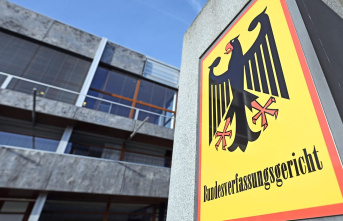Germany urgently needs well-trained workers, politicians, business and experts all agree. But where do you get it? Experts say it won't work without immigration. That is why the traffic light coalition wants to remove hurdles for skilled workers from abroad. They should be able to come to Germany more easily than before.
The baby boomers of the baby boomer generation of the 1960s will soon be retiring and demographic change will intensify: without the immigration of skilled workers and rising employment rates, the German labor market will have over seven million fewer workers by 2035, according to the Institute for Labor Market and Occupational Research (IAB ) of the Federal Employment Agency recently. As a countermeasure, IAB researcher Enzo Weber called "attracting and integrating immigrants".
For a long time, people from non-EU countries only had unrestricted access to the German labor market with an academic education. Since March 2020, however, skilled workers with foreign vocational training have also been able to stay for six months to look for a job (Skilled Workers Immigration Act). For this, people need a recognized professional qualification and knowledge of German. In addition, they must be able to earn their own living during the search.
The recognition of the equivalence of professional qualifications is probably the biggest hurdle, according to the IAB in a statement in October. "If Germany wants to noticeably increase labor migration, there is a high probability that it will dispense with the equivalency test in its current form or will have to reform it significantly." The system of controlling labor migration anchored in the Skilled Immigration Act is based on minimum criteria that could have a restrictive effect because they all have to be met at the same time.
The coalition wants to ensure more immigration into the labor market. To this end, bureaucratic hurdles are to be removed and marketing abroad expanded. Recognized skilled workers should be able to come to Germany more easily than before with a valid employment contract. This emerges from a key points paper that is to be decided by the cabinet on Wednesday. Under certain conditions, people should also be able to work in Germany without prior formal recognition of their qualifications. "With the regulatory package, we are strengthening the German labor market as a whole. This also includes temporary or permanent immigration for jobs that do not require academic or professional qualifications," it says.
Anyone who has completed two-year vocational training abroad and can also provide evidence of at least two years of professional experience should be allowed to work in Germany even if there is no formal recognition of the qualification obtained in their home country. However, an employment contract is required. Interested parties without an employment contract can instead receive a "chance card" with which they can enter the country and look for a job locally. However, this option should only be available to foreigners with "good potential", which must be proven with the help of a points system.
Canada is a model for such a point system. Those willing to immigrate receive points for criteria such as education, work experience, age and language skills via the "Express Entry" online system. People from this pool of applicants are asked at regular intervals to apply formally for one of three immigration programs. In this second stage, points are then awarded again.
The points system for skilled workers from non-EU countries roughly outlined in the key points paper is based on similar parameters. "The selection criteria can include qualifications, language skills, professional experience, connection to Germany and age," says the key points paper.
The economy is responding benevolently. For the Central Association of the German Construction Industry, the "opportunity card" and easier immigration for experienced professionals would be "important building blocks for recruiting skilled workers in construction". The IT industry association Bitkom says: "If in future formal qualifications and proven knowledge of German are no longer a prerequisite for immigration, IT professions in particular could benefit from this, in which qualifications are often acquired alongside work and the working language is English anyway." The CDU/CSU parliamentary group in the Bundestag is more skeptical. She would like immigration to remain linked to the existence of a job, as has been the case up to now.












